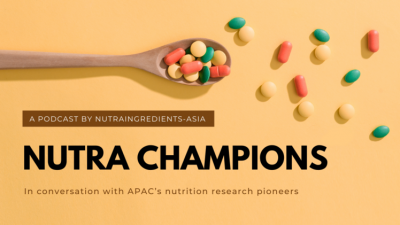Pharmacist-led trial boosts adherence to iron supplementation in premature infants – new data

Premature birth remains a global concern with a range of long-term health implications, including iron deficiency.
This study by Japanese pharmacists outlines a patient-centred medication therapy management trial on iron deficiency among premature infants. The trial, conducted at a leading tertiary hospital in Shaoxing, China, sought to bridge critical gaps in care for infants born at 26 to 30 weeks and 6 days gestational age.
The study employs a randomized controlled trial design, enrolling 81 premature infants, spanning a spectrum of varied genetic backgrounds. These infants were randomly assigned to either an intervention or control group.
The intervention group underwent pharmacist-driven discharge counselling on iron supplements from recruitment until the 12th month, while the control group received standard care common in hospitals.
The key outcomes for each group were then measured by haemoglobin levels, serum iron, medication adherence estimation, differentiation scale, satisfaction with information about medicines scale, and the Bayley scales for infant development.
The intervention group demonstrated significant improvements in critical parameters. Haemoglobin and serum iron levels saw marked differences between the control and intervention groups post-intervention (101.36 vs. 113.55, P < 0.0001 and 51.13 vs. 101.36, P = 0.004). Notably, the intervention group exhibited enhanced medication adherence estimation. Mental development index and psychomotor development index were also notably superior in the intervention group compared to the control group.
The findings illuminate the positive impact of pharmacist-led interventions in improving clinical outcomes and medication adherence among premature infants with iron deficiency. The critical role of iron in the development of the infant brain underscores the significance of ensuring optimal iron levels, especially in premature neonates with limited iron stores. While the risk of anaemia and iron deficiency remains a concern, effective iron deficiency management is achievable through enhanced adherence to iron supplementation in the long run.
The study opens avenues for innovative approaches to healthcare delivery, emphasizing the pivotal role of pharmacists in educating and counselling parents of preterm infants. The pharmacist-led intervention not only demonstrated tangible improvements in clinical parameters but also contributed to better mental and psychomotor development in premature infants.
As global medication adherence rates continue to present challenges, this study offers some hope by suggesting that the targeted pharmacist-led education can make significant strides in enhancing adherence and, consequently, health outcomes.
In conclusion, this study underscored the transformative potential of pharmacist-led interventions in the realm of neonatal care. The positive outcomes observed in clinical parameters and developmental indices among premature infants emphasize the need for a paradigm shift in healthcare practices.
As parents and healthcare providers navigate the complexities of premature birth, the role of pharmacists emerges as a source of guidance, offering a path towards enhanced adherence, improved clinical outcomes, and a brighter future for a vulnerable group of patients.
Source: Frontiers in Endocrinology
Tailored pharmacist-led intervention to improve adherence to Iron supplementation in premature infants: a randomized controlled trial in China
DOI: 10.3389/fendo.2023.1288347
Authors: Yu B, Ni M, Li H, Xu R, Wang A














